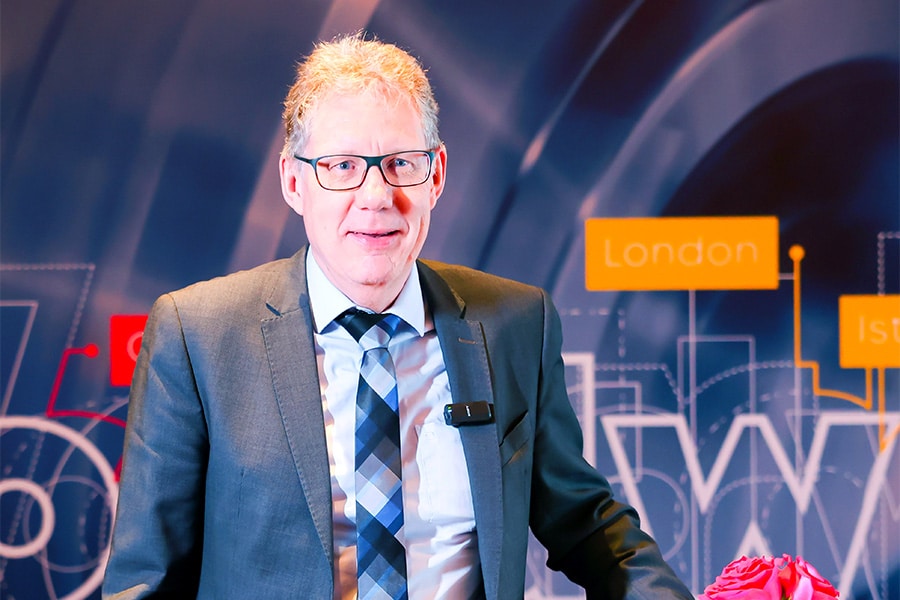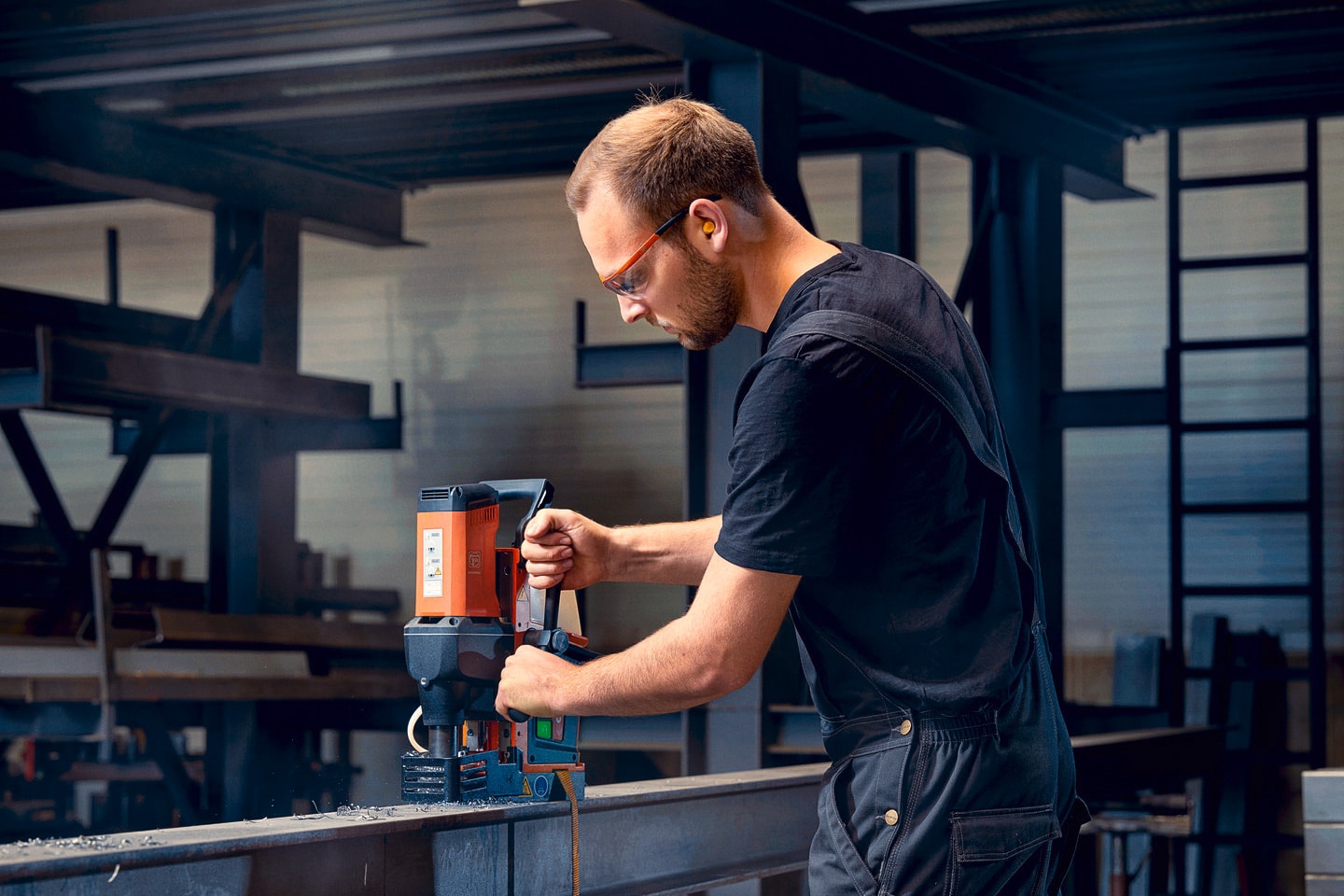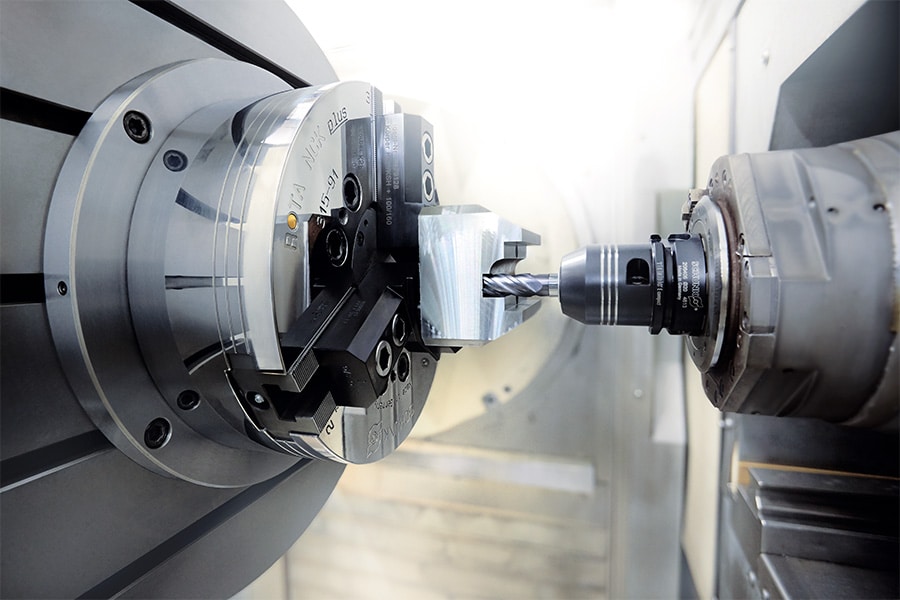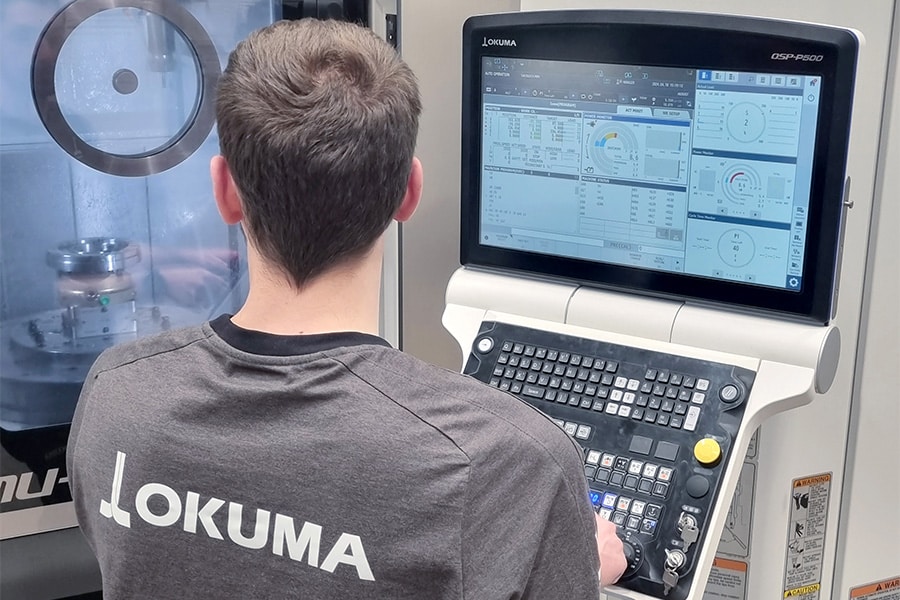This leads to greater transparency, promotes system integration and improves production processes. Steps toward Industry 4.0 are also being taken in welding fume extraction. For example, Nederman recently launched SmartFilters on the market. These are ready for the smart production site of the future.
Metal companies with welding activities in their portfolio want to set up their production process so that they can produce care-free in clean air. This sounds quite simple, but is not always self-evident. For example, welding fume extraction must be well matched to the specific requirements and production processes of the workplace, regular maintenance is required, and unexpected malfunctions must be solved as quickly as possible to avoid long downtimes. Nederman, a specialist in environmental technology, offers an answer to this with its new generation of SmartFilters. Welding specialist Rik Amand explains: "A first aspect we paid a lot of attention to is the technology. The filter system with a square shape and rounded corners utilizes the volume in the dust collector in the most optimal way. This generates more cartridge airflow per square meter, leading to a reduction in the ecological footprint of the system."

Filter material
In addition, the filter material itself has also been further developed. "Among other things, we use a thin layer of synthetic fibers. This catches the dust particles on the surface before they penetrate the filter and can cause blockages. In addition, the innovative technology in the compressed air cleaning system ensures that the dust is collected centrally on the filter surface and cleaned with a strong cleaning pulse. The effect of this is better cleaning, lower compressed air usage, less energy consumption and longer cartridge life." Implementing new technology has made it possible to downsize the new filter media. "With the same filter area as before, we can increase the load on filters up to 30% in welding applications. Specifically, this means that where a Type 6 was previously required, for example, a Type 4 now suffices. In other words, the footprint has become much smaller."

Intelligence
In addition to further development of the technology, the SmartFilters have also become intelligent. Amand: "As standard, we supply the filters Insight Ready. They come standard with three sensors and a built-in connectivity module that can be further expanded as needed. For example, we can provide real-time monitoring, visualization and tracking of system performance, including customized dashboards and alarms. This gives companies insight into key parameters and data of the entire filtering process. It enables them to operate and maintain the filtration system more efficiently, which can improve the productivity of production processes." It can also be linked to the cloud, allowing users to remotely monitor and proactively anticipate their systems. "If a customer wants even more service, we can relieve them by remotely monitoring the filters so that we can take immediate action in case of malfunctions."
Completely care-free production is getting closer and closer. "One step further is that we offer users not products but pure air on the basis of performance-based contracts, for example. Companies can fully focus on their core business and we offer them care-free pure air. We are not that far yet, but with the SmartFilter the first steps in that direction have already been taken."
Industry 4.0 in welding fume extraction
This leads to greater transparency, promotes system integration and improves production processes. Steps toward Industry 4.0 are also being taken in welding fume extraction. For example, Nederman recently launched SmartFilters on the market. These are ready for the smart production site of the future.
Metal companies with welding activities in their portfolio want to set up their production process so that they can produce care-free in clean air. This sounds quite simple, but is not always self-evident. For example, welding fume extraction must be well matched to the specific requirements and production processes of the workplace, regular maintenance is required, and unexpected malfunctions must be solved as quickly as possible to avoid long downtimes. Nederman, a specialist in environmental technology, offers an answer to this with its new generation of SmartFilters. Welding specialist Rik Amand explains: "A first aspect we paid a lot of attention to is the technology. The filter system with a square shape and rounded corners utilizes the volume in the dust collector in the most optimal way. This generates more cartridge airflow per square meter, leading to a reduction in the ecological footprint of the system."

Filter material
In addition, the filter material itself has also been further developed. "Among other things, we use a thin layer of synthetic fibers. This catches the dust particles on the surface before they penetrate the filter and can cause blockages. In addition, the innovative technology in the compressed air cleaning system ensures that the dust is collected centrally on the filter surface and cleaned with a strong cleaning pulse. The effect of this is better cleaning, lower compressed air usage, less energy consumption and longer cartridge life." Implementing new technology has made it possible to downsize the new filter media. "With the same filter area as before, we can increase the load on filters up to 30% in welding applications. Specifically, this means that where a Type 6 was previously required, for example, a Type 4 now suffices. In other words, the footprint has become much smaller."

Intelligence
In addition to further development of the technology, the SmartFilters have also become intelligent. Amand: "As standard, we supply the filters Insight Ready. They come standard with three sensors and a built-in connectivity module that can be further expanded as needed. For example, we can provide real-time monitoring, visualization and tracking of system performance, including customized dashboards and alarms. This gives companies insight into key parameters and data of the entire filtering process. It enables them to operate and maintain the filtration system more efficiently, which can improve the productivity of production processes." It can also be linked to the cloud, allowing users to remotely monitor and proactively anticipate their systems. "If a customer wants even more service, we can relieve them by remotely monitoring the filters so that we can take immediate action in case of malfunctions."
Completely care-free production is getting closer and closer. "One step further is that we offer users not products but pure air on the basis of performance-based contracts, for example. Companies can fully focus on their core business and we offer them care-free pure air. We are not that far yet, but with the SmartFilter the first steps in that direction have already been taken."



